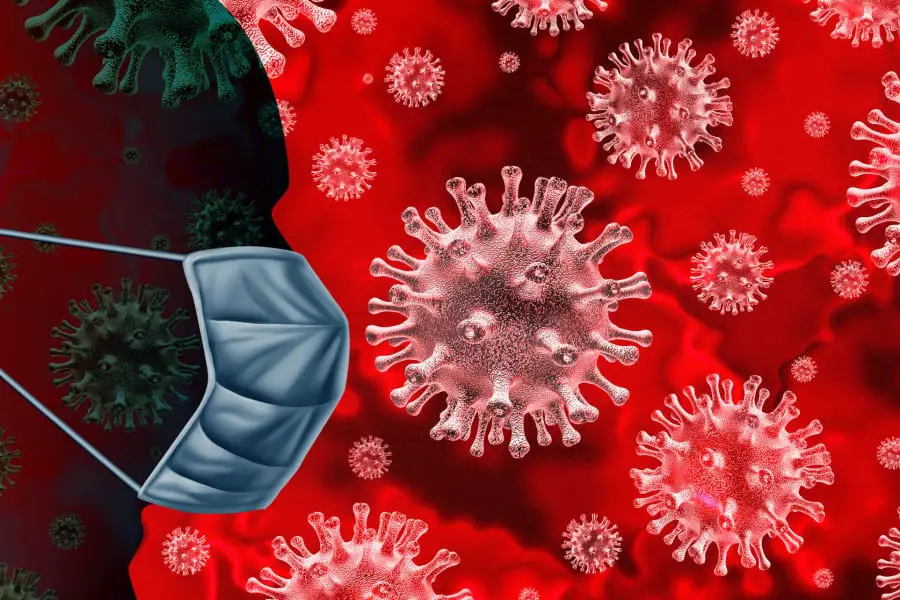Nearly every aspect of life has been affected by the COVID pandemic and subsequent shutdowns or quarantines. Recycling is no exception and has been dramatically affected in most areas. COVID has disrupted services, facilities, and the volume of recycling across the world. Although waste management systems and recycling centers are considered essential businesses, they have still had to deal with some significant setbacks and obstacles.
One of the primary causes of these obstacles is a necessary one and that is worker safety. Even though facilities and collection operations could remain open, they needed to first find a way to protect all of their workers and keep them safe and healthy. Due to distancing protocols, new personal protective equipment requirements, and other restrictions, the workflow slowed and adjustments had to be made. Once these changes were implemented and work could be safely streamlined again, there were other challenges to face.
Many major metropolitan areas experienced a shortage of workers, either due to illness or required quarantine time after exposure to a COVID positive person. Many areas had to completely suspend pickups of both trash and recycling altogether. Others could maintain just the minimum of trash pick up, and recycling services were temporarily suspended along with other services like bulk pickups. Staffing shortages in many areas such as Florida, Texas, and Philadelphia have let to less frequent recycling pickups, such as going from weekly to biweekly schedules.
Effects on Recycling
Recycling has encountered many challenges throughout the pandemic, besides the issues with the workforce shortage, suspended services there is also the aspect of how to treat recycles during a global pandemic. The consensus from most officials is that if you or anyone in your household is sick with COVID, any recyclables should be bagged and tied and treated as trash, and not placed in recycling bins for collection. You may be surprised to know that there is still a good portion of sorting and processing that is done by human hand, and even with PPE, the risk is too great to accept these potentially contaminated items for processing.
Another effect has been the dramatic increase in single-use products to help protect people from contamination. Everything from the re-emergence of plastic bags for grocery shopping, to plastic gloves and surgical masks has created more waste than every. Sadly, all the progress recycling has made to protect our environment seems to be heading in the opposite direction now. Of course, much of this is necessary to ensure health is protected and lives are saved, but let’s hope we can adjust and begin to balance public health with protecting the environment as well. There are some basic things each of us can and should do so let’s keep vigilant and do whatever we can to get through this very trying time for the entire world.
How to Recycle during COVID?
Things to consider when recycling during COVID:
First of all, follow the advice or instruction from your local waste management system regarding recyclables. If you or anyone in your home is sick with COVID or suspected COVID (awaiting test results), treat your recycling items as trash until everyone in the house is well and has cleared any required quarantine. It is important we protect our essential workers. So bag ALL of your trash and recyclables and make sure to tie bags shut. This will reduce the chances of exposure.
Please be sure that all of your PPE waste is disposed of properly. Do not litter your used plastic gloves or masks, first because you may be spreading the virus unknowingly, and second, that litter is terrible for the environment, our water systems, and plant/animal life as well. Masks are already beginning to wash up on beaches all around the world and it is tragic.
If your recycling collection has been suspended due to COVID, consider finding an open facility that is accepting bottles, cans, plastics, and other items. We all need to step up and do a little more work to keep recyclables out of our landfills whenever possible. Consider offering to do a run for your immediate neighbors as well. They can leave the items out on their doorsteps or the curb if you can facilitate the dropoff. Just be sure you are cautious and wear gloves and a mask when handling any recyclables and wash your hands thoroughly when you are done to minimize your own risk of exposure.
In some stores, reusable bags are allowed if the shopper can bag their own items, to protect store employees. If this is the case in your area, resume your use of reusable shopping bags to reduce the need for single-use plastic bagshttps://www.recyclingcenternear.me/plastic-bag-recycling/ as much as possible.

